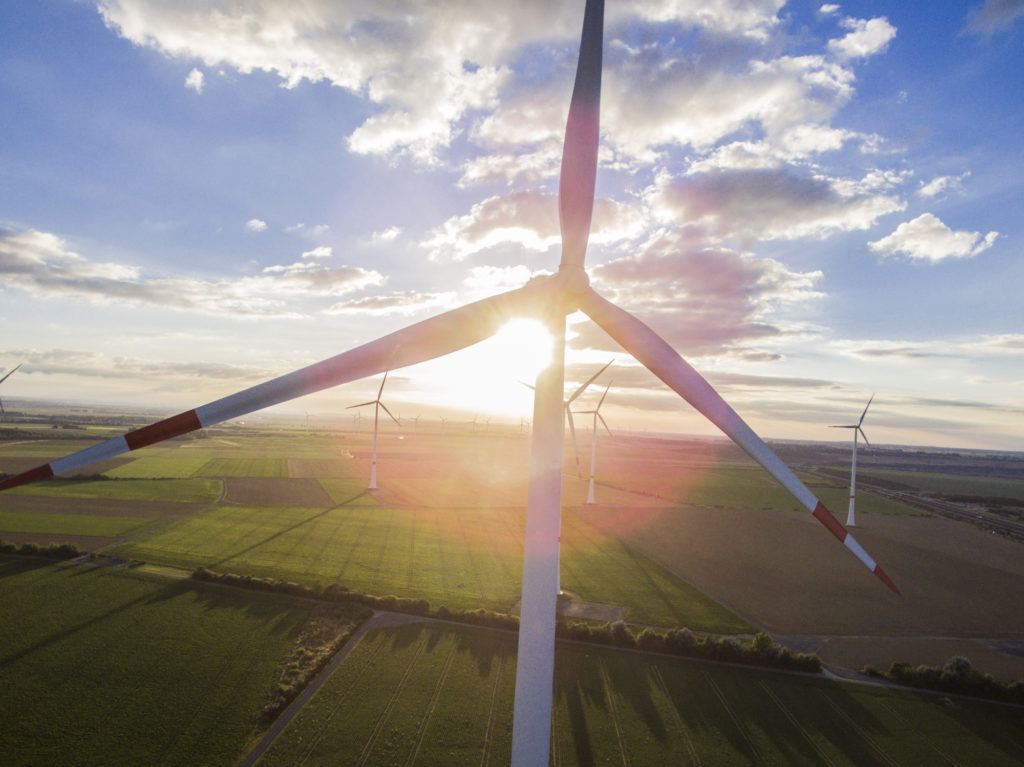
EON SE’s 22 billion-euro ($27.1 billion) bid for Innogy SE establishes a German energy champion after Angela Merkel’s radical energy policy wrought years of upheaval on the country’s once-mighty utilities.
With investors from Italy and France weighing their own offers for the operator of green power plants and grid networks, EON on Sunday announced a complex deal with Innogy’s main shareholder, RWE AG. The transaction would solidify EON and RWE as the main German electricity and gas providers and keep Innogy out of the hands of foreign utilities that have gained scale over their German counterparts in recent years.
Seven years ago, a nuclear meltdown in Japan prompted Merkel to push for greener alternatives, upending the energy business. Once among the most profitable utilities in Europe, EON and RWE wrote off billions from their balance sheets, saw their market value slump and ended splitting up themselves. For a leading lawmaker in the chancellor’s coalition, EON’s move bolsters the weakened German companies against larger rivals such as Enel SpA of Italy and Electricite de France SA.
“This is a chance for two key German energy companies,” Joachim Pfeiffer, a lawmaker who speaks on economy for Merkel’s ruling CDU-CSU caucus in parliament, said in an interview. “Fifteen years ago, they were global players. Now look at them, hardly a shadow of their former selves. Now they have a chance to become real players, a powerhouse in Germany and in Europe.”
It comes at a delicate time for Merkel, who is attempting to balance her party’s instinct for open markets against protectionist moves from the U.S. and China. U.S. President Donald Trump last week imposed trade tariffs that will hit European businesses and has threatened limits on German car imports. German industry has expressed concern about China’s ability to buy up overseas assets without opening to foreign firms.
To read about Germany’s trade friction with China, click here.
“A mega-company is being created here with matching market clout,” said Wilfried Gillrath, managing director of Lichtblick SE, Germany’s biggest provider of green power to the retail market with 1 million customers. “That’s a danger to competition in the power market and can lead to higher prices for consumers. This merger must be scrutinized.”
The deal is the latest step in the transformation of German’s energy business under Merkel’s ambition to shut coal and nuclear plants in favor of wind and solar.
“This gives us two powerful companies in the international marketplace,” North Rhine-Westphalia state premier Armin Laschet, a party ally of German Chancellor Angela Merkel, told ARD television.
Innogy was born less than two years ago, spun off as the clean-energy business of RWE, which retained a controlling stake. In the transaction outlined Sunday, EON will emerge with the retail and network businesses of both companies. RWE will end up owning the combined renewable-generation businesses as well a large stake in EON, returning green-energy assets that it had spun off.
According to one person familiar with the deal, the transaction gives Innogy an enterprise value of 43 billion euros once debt is included. Relatively small amounts of cash will change hands: EON will pay about 5 billion euros to buy out Innogy’s minority shareholders, while RWE pays EON 1.5 billion euros.
For relatively little cash outlay, the deal take three relatively small businesses and creates one the largest grid and utility players in Europe and pure generation company with a strong renewables portfolio, the person said, asking not be identified before management speaks publicly.
Executives from the companies are likely to start explaining the rationale Monday when Innogy has its annual press conference to discuss earnings and strategy. RWE and EON follow on Tuesday and Wednesday. Still, the complexity of the deal and RWE’s reversal of strategy left some analysts scratching their heads.
“The only thing that’s clear is that they’ve kept it all German,’’ said Arash Roshan Zamir, a utilities and clean energy analyst at Warburg Research. “That will be a relief for the unions, the municipal stakeholders and politicians. We have a messy merging of interests.’’
Innogy was weakened in December when its Chief Executive Officer Peter Terium departed amid complaints from investors that he had lost focus on profits an dividends in favor of an overseas investment push. With an interim CEO promising a new strategy and the board looking for a permanent replacement, Innogy was vulnerable to a takeover.
For EON, buying Innogy’s assets gives it some scale to compete with larger utilities such as Enel, Iberdrola SA and Engie SA, which, according to people familiar with the deal, were considering their own bid for the German energy company. EDF ranks as the biggest owner of power generation capacity worldwide, followed by Enel and Duke Energy Corp. in the U.S., according to Bloomberg New Energy Finance data. RWE ranked 10th and EON 13th.
“Combining renewable assets with EON’s should help RWE better compete with other utilities at future renewable auctions,” said Elchin Mammadov, an industry analyst at Bloomberg Intelligence. “However, bringing renewables back into RWE makes me wonder whether the company has a clear, long-term strategy for the future.”